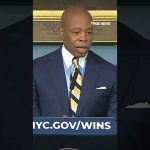The recent release of a report by the Justice Department regarding the events of January 6th has set the political world ablaze. It has come to light that the FBI had 26 confidential human sources present during the chaos at the Capitol. These sources are individuals on the FBI’s payroll who gather information. Notably, of these 26 sources, four actually breached the Capitol building during the riot, and 13 others entered restricted areas nearby. This information raises questions about the role these FBI informants may have played that day.
According to reports from the Justice Department’s Inspector General, the FBI was aware of potential violence on January 6th. However, despite this forewarning, they seemed to do little to intervene. One might wonder why the FBI, with its multitude of informants on the ground, failed to act decisively. Instead, they provided Congress with misleading and incomplete information regarding the presence of undercover agents, leading to further suspicion about their intentions and actions that day.
In light of these revelations, some observers have begun to question whether the FBI agents tasked with monitoring potential threats might have inadvertently—or perhaps intentionally—stirred the pot. Historically, there have been instances where FBI informants have instigated scenes rather than merely observed them. Could this mean that instead of simply reporting, some agents influenced events that day? The stakes are high, with many suspecting that the FBI’s layers of involvement range from observation to overt participation.
It’s crucial to note that none of the 26 confidential sources have faced charges for their actions on January 6th. This sparks a debate about accountability, particularly when the Justice Department framed that day as an unprecedented attack on democracy. With individuals facing years in prison for their participation in the riot, the absence of repercussions for these informants is causing concern among legal experts. Questions abound: Can one commit a crime while acting as an undercover agent and get away scot-free? What does this mean for those who do not enjoy such allowances?
Further complicating matters, this report may have implications for how future cases regarding January 6th are handled. Legal scholars point out that this information could potentially overturn convictions where individuals were charged based on similar behavior as those informants. As Congress plans to investigate further, the prospect of reform within the FBI looms large. This situation is developing, and with every new detail, it becomes more apparent that the full story surrounding January 6th—and the role of the FBI—may still be unfolding.
As public scrutiny continues, many are left pondering whether the FBI played a nefarious role in this saga or if it is merely a tangled web of bureaucratic missteps. With calls for transparency growing louder, continued scrutiny will determine not just the fate of individuals charged in connection with January 6th but also the integrity of agencies sworn to protect and serve the public. One thing is certain—the questions are just beginning, and any answers uncovered could lead to significant shifts in the political landscape.




